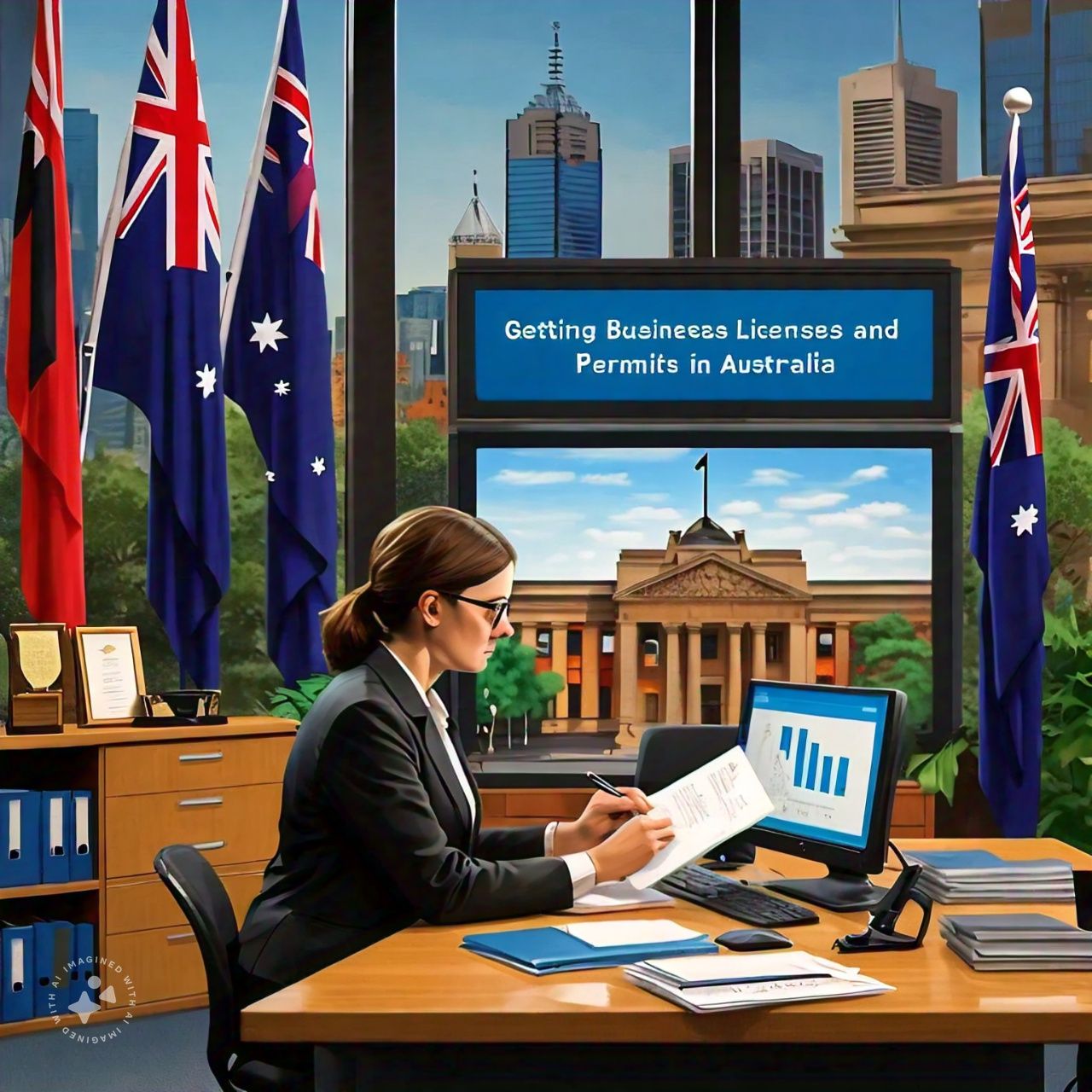Starting a business in Australia involves more than just a great idea and a business plan. To operate legally, it’s crucial to obtain the necessary business licenses and permits. This ensures that your business complies with Australian regulations, protecting you from fines or legal issues. The type of license or permit required depends on your business structure, industry, and location. In this guide, we’ll cover the key steps and considerations for obtaining business licenses and permits in Australia.
1. Determine the Type of Business License Required
The first step in obtaining a business license in Australia is identifying the specific licenses and permits your business needs. This will depend on several factors:
- Business Structure: Whether you’re a sole trader, partnership, or company will influence the type of licenses you require.
- Industry: Different industries have different licensing requirements. For example, hospitality businesses may need food safety licenses, while construction companies may need building permits.
- Location: Regulations can vary by state or territory. It’s important to check with local authorities for region-specific requirements.
Some common licenses required by Australian businesses include:
- Australian Business Number (ABN): All businesses in Australia must apply for an ABN, which allows them to operate and invoice customers.
- Tax File Number (TFN): For tax purposes, businesses must also apply for a TFN.
- Goods and Services Tax (GST) Registration: If your business has a turnover of $75,000 or more, you are required to register for GST.
2. Federal, State, and Local Government Requirements
In Australia, different levels of government may impose various licensing requirements. It is essential to understand which level of government is responsible for issuing the licenses relevant to your business.
- Federal Licenses: Federal licenses are typically required for businesses that operate across multiple states or territories or are involved in regulated industries such as aviation, broadcasting, or import/export activities.
- State/Territory Licenses: Most business licenses are issued by state or territory governments. These may include licenses related to health and safety, workers’ compensation, and industry-specific regulations. For example, a license may be needed for operating a food business or a childcare center.
- Local Government Licenses: Local councils may also require permits, particularly for businesses operating in specific locations. This may include planning and zoning permits, signage permits, or health and safety inspections for restaurants and cafes.
3. Application Process
Once you’ve identified the necessary licenses, the next step is to apply for them. Here’s a general overview of the application process:
- Research License Requirements: Use online tools such as the Australian Business License and Information Service (ABLIS) to determine which licenses you need based on your business type and location.
- Submit Application: Applications can often be submitted online through the relevant government department. Be prepared to provide detailed information about your business, including the nature of your operations, your business structure, and any safety or regulatory compliance measures.
- Pay Fees: Most business licenses require a fee, which can vary depending on the type of license and your business size.
- Approval and Compliance: After submitting your application, you may need to wait for approval. Once approved, ensure that you comply with all conditions of the license. Some licenses require regular renewal, while others may require annual inspections to ensure ongoing compliance.

“Getting Business Licenses and Permits in the Australia”
4. Industry-Specific Licenses
Certain industries have additional licensing requirements. If you operate in a regulated industry, it’s important to be aware of the specific licenses you need. For example:
- Hospitality: Restaurants, cafes, and bars may need food handling permits, liquor licenses, and health and safety inspections.
- Construction: Builders and contractors often require building permits, safety certifications, and environmental clearances.
- Retail: Depending on the products you sell, you may need specialized licenses, such as those for selling tobacco, firearms, or pharmaceuticals.
5. Maintaining Compliance
After obtaining the required licenses and permits, your responsibility doesn’t end there. It is crucial to stay compliant with all regulations. This means renewing licenses before they expire, staying informed of any changes in laws or regulations, and ensuring that your business remains in good standing with regulatory bodies.
Non-compliance can result in hefty fines or legal consequences. Therefore, it’s beneficial to keep a schedule of renewal dates and to engage in regular checks to ensure your business operations align with the terms of your licenses.
Conclusion
Getting the proper business licenses and permits is essential for running a legal and compliant business in Australia. By understanding the types of licenses required, navigating the federal, state, and local government processes, and staying compliant, you can avoid unnecessary legal issues and ensure smooth business operations. Whether you’re starting a small retail shop or launching a large construction company, being well-prepared and informed about licensing requirements is a critical step in your entrepreneurial journey.
FAQs
- What licenses are required to start a business in Australia?
Common licenses include an Australian Business Number (ABN), a Tax File Number (TFN), and industry-specific licenses like food handling permits or building permits. - Do I need both federal and state licenses for my business?
It depends on your business type and location. Federal licenses are needed for businesses operating across states or in regulated industries, while most other licenses are managed by state or local authorities. - How can I apply for a business license in Australia?
Applications can be submitted online through the relevant government department, and fees will apply based on the type of license.


































Leave a Reply